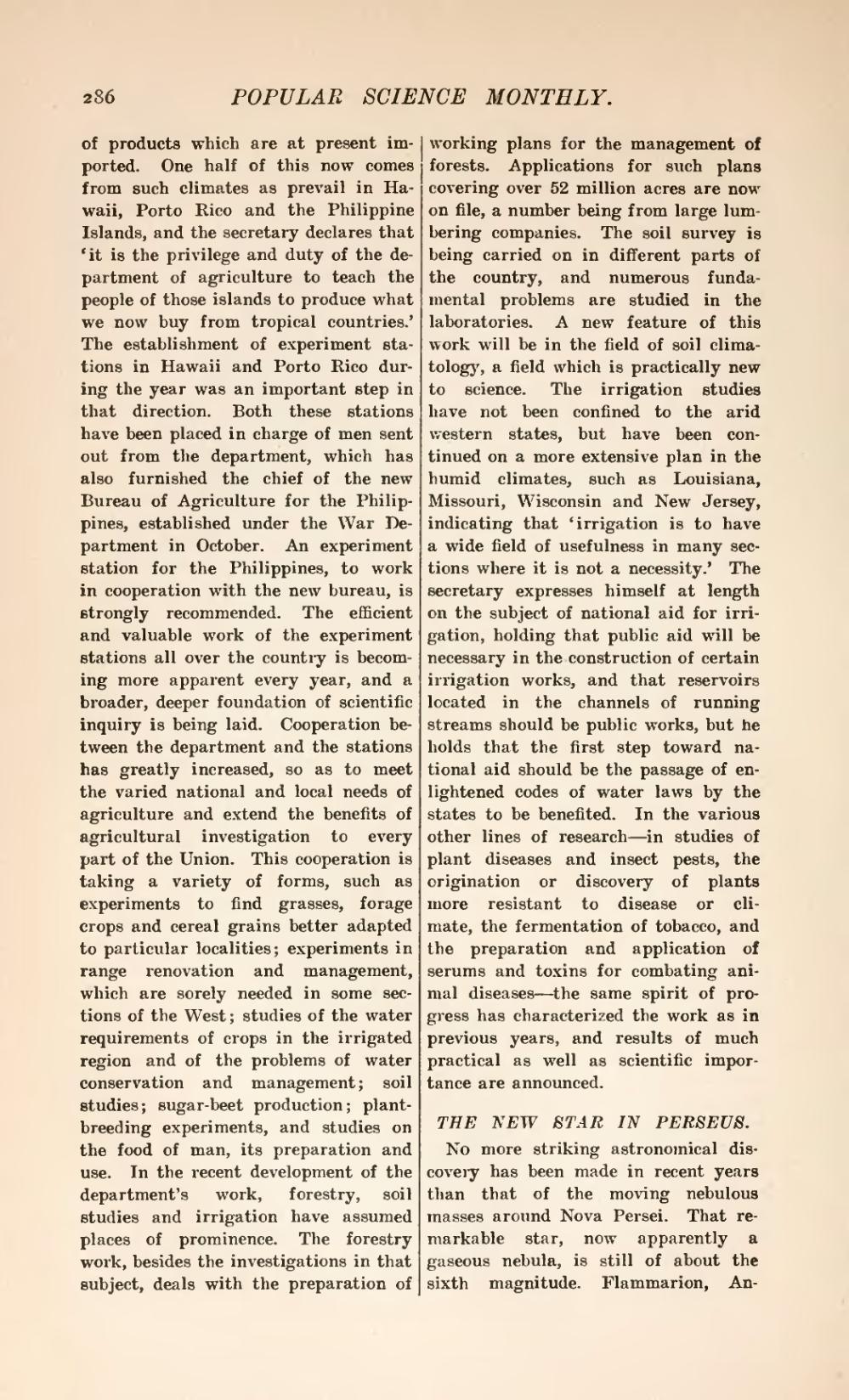of products which are at present imported. One half of this now comes from such climates as prevail in Hawaii, Porto Rico and the Philippine Islands, and the secretary declares that 'it is the privilege and duty of the department of agriculture to teach the people of those islands to produce what we now buy from tropical countries.' The establishment of experiment stations in Hawaii and Porto Rico during the year was an important step in that direction. Both these stations have been placed in charge of men sent out from the department, which has also furnished the chief of the new Bureau of Agriculture for the Philippines, established under the War Department in October. An experiment station for the Philippines, to work in cooperation with the new bureau, is strongly recommended. The efficient and valuable work of the experiment stations all over the country is becoming more apparent every year, and a broader, deeper foundation of scientific inquiry is being laid. Cooperation between the department and the stations has greatly increased, so as to meet the varied national and local needs of agriculture and extend the benefits of agricultural investigation to every part of the Union. This cooperation is taking a variety of forms, such as experiments to find grasses, forage crops and cereal grains better adapted to particular localities; experiments in range renovation and management, which are sorely needed in some sections of the West; studies of the water requirements of crops in the irrigated region and of the problems of water conservation and management; soil studies; sugar-beet production; plant-breeding experiments, and studies on the food of man, its preparation and use. In the recent development of the department's work, forestry, soil studies and irrigation have assumed places of prominence. The forestry work, besides the investigations in that subject, deals with the preparation of working plans for the management of forests. Applications for such plans covering over 52 million acres are now on file, a number being from large lumbering companies. The soil survey is being carried on in different parts of the country, and numerous fundamental problems are studied in the laboratories. A new feature of this work will be in the field of soil climatology, a field which is practically new to science. The irrigation studies have not been confined to the arid western states, but have been continued on a more extensive plan in the humid climates, such as Louisiana, Missouri, Wisconsin and New Jersey, indicating that 'irrigation is to have a wide field of usefulness in many sections where it is not a necessity.' The secretary expresses himself at length on the subject of national aid for irrigation, holding that public aid will be necessary in the construction of certain irrigation works, and that reservoirs located in the channels of running streams should be public works, but he holds that the first step toward national aid should be the passage of enlightened codes of water laws by the states to be benefited. In the various other lines of research—in studies of plant diseases and insect pests, the origination or discovery of plants more resistant to disease or climate, the fermentation of tobacco, and the preparation and application of serums and toxins for combating animal diseases—the same spirit of progress has characterized the work as in previous years, and results of much practical as well as scientific importance are announced.
THE NEW STAR IN PERSEUS.
No more striking astronomical discovery has been made in recent years than that of the moving nebulous masses around Nova Persei. That remarkable star, now apparently a gaseous nebula, is still of about the sixth magnitude. Flammarion, An-
